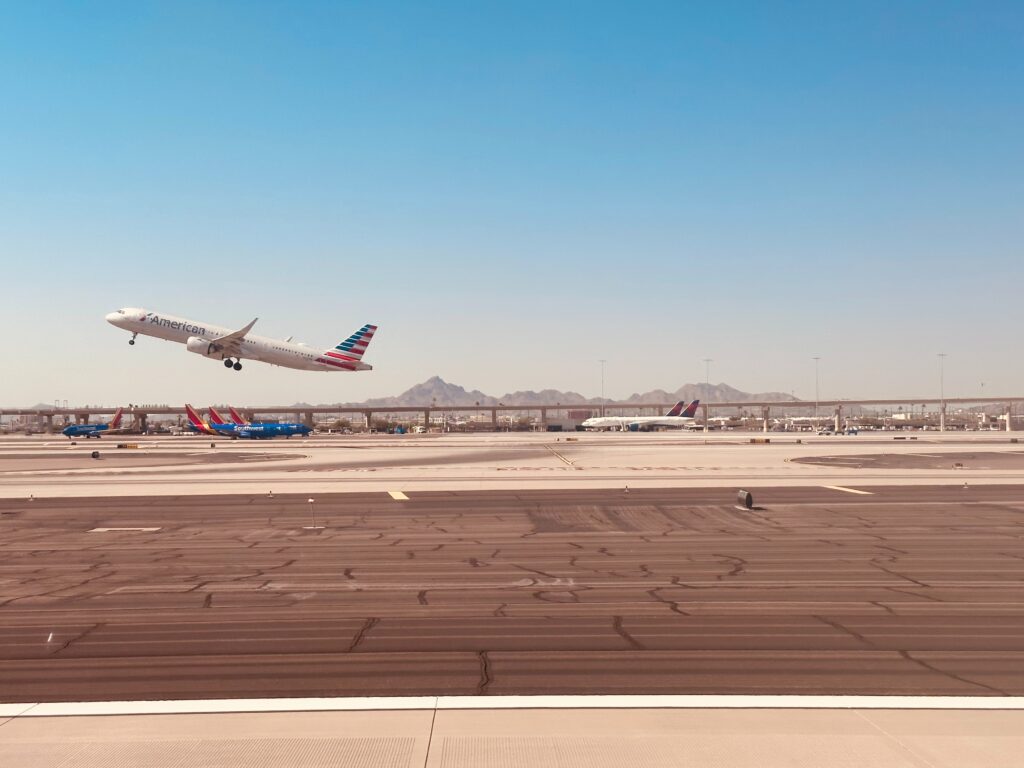
Dynamic Phoenix: A Chronicle of Economic Triumphs, Tech Surges, and Population Boom
Phoenix, Arizona, is experiencing a remarkable economic renaissance, propelled by key players across diverse sectors. The city has experienced dynamic growth and major developments that underscore Phoenix’s appeal as a hub for businesses, investors, and individuals seeking new opportunities. From industrial expansions and tech sector growth to population dynamics and the economic impact of military activities, Phoenix’s economic landscape tells a story of sustained prosperity and innovation.
Super Radiator Coils Breaks Ground in Mesa
Super Radiator Coils, a key player in the industrial sector, is making a substantial investment of $30 million to establish a cutting-edge facility in Mesa, Arizona. This move represents a vote of confidence in Mesa’s business-friendly environment. The new facility is projected to cover an area of 150,000 square feet, equipped with state-of-the-art technology to enhance production efficiency.

The economic impact of this venture extends beyond the corporate realm. Super Radiator Coils’ expansion is set to create approximately 150 new jobs in Mesa. These jobs will encompass a range of skill sets, from manufacturing and engineering to administrative roles. The influx of employment opportunities is a welcome development for Mesa’s residents and contributes to the city’s overall economic vitality.
In addition to job creation, the new facility is expected to stimulate the local economy through increased demand for goods and services. As Super Radiator Coils becomes an integral part of Mesa’s business landscape, it is likely to engage with local suppliers, further boosting the region’s economic ecosystem. This expansion serves as a testament to Mesa’s appeal as a strategic location for industrial growth within the larger Phoenix MSA (Phoenix Business Journal).
Tech Job Growth in Phoenix
Phoenix is experiencing a dynamic transformation, particularly in its technology sector. According to the latest CBRE report, the city has witnessed an impressive 40% increase in tech job growth over the past year. This surge in technology-related employment is not only reshaping the employment landscape but also positioning Phoenix as a formidable player in the national tech scene.
The report highlights key areas of growth within the tech sector, including software development, data analytics, and artificial intelligence. Phoenix’s ability to attract and retain tech talent is a critical factor in this upward trajectory. Companies are increasingly drawn to the city’s favorable business environment, cost-effectiveness, and quality of life, contributing to the flourishing tech ecosystem.
The leasing activity in the tech sector has also experienced a significant uptick. Companies are securing office spaces and establishing their presence in Phoenix, signaling a long-term commitment to the city.
Phoenix’s evolution into a tech hub is not only about job numbers; it’s a transformative journey that impacts various facets of the city’s identity. From creating a diverse and skilled workforce to fostering innovation and entrepreneurship, the tech boom in Phoenix is positioning the city as a dynamic and forward-thinking metropolis.
Metro Phoenix: Top Market for Growth and Real Estate Investment in 2024
As we look forward to 2024, Metro Phoenix is poised to emerge as a top market for both employment growth and real estate investment. According to Urban Land Institute’s Emerging Trends report, Projections indicate a robust 7.2% increase in employment, surpassing the national average. This growth spans across diverse industries, including healthcare, finance, and manufacturing, contributing to the city’s economic resilience.



The real estate market in Metro Phoenix is also primed for success. Investors are eyeing the city as a lucrative destination for real estate ventures. The combination of population growth, job creation, and a favorable business environment positions Metro Phoenix as a strategic location for real estate investments (AZ Central).
Metro Phoenix’s trajectory as a top market is further supported by its infrastructure development and commitment to sustainability. The city’s investment in modernizing transportation, enhancing public spaces, and promoting eco-friendly initiatives aligns with the preferences of a diverse and forward-thinking population.



Phoenix Sky Harbor Airport’s Record Year
Phoenix Sky Harbor Airport, a critical hub in the region, is gearing up for a record-breaking year. A recent article from the Phoenix Business Journal shows the airport has seen around 40.1 million passengers this year, which is up 4.5% compared to 2019 for the same 10-month period. All indications show that the year-end numbers will make 2023 a record-setting year for the airport. The airport’s success is a testament to Phoenix’s status as a major transportation hub.
The economic impact of Phoenix Sky Harbor Airport extends beyond the airport grounds. Increased passenger traffic translates into higher demand for hospitality services, transportation, and retail. Local businesses catering to airport visitors experience a boost in revenue, contributing to the overall economic vibrancy of the region.
The airport’s success is also a result of strategic initiatives to enhance its facilities and services. Ongoing expansions, technology upgrades, and a focus on sustainability contribute to a positive passenger experience. Phoenix Sky Harbor Airport’s record year is a collective achievement that reflects the city’s commitment to providing world-class amenities and connectivity.
ASM America Headquarters in Scottsdale
Scottsdale is celebrating a significant milestone with the establishment of ASM America’s headquarters. According to the Phoenix Business Journal, ASM plans to spend $300 million on both a new headquarters and a research and development facility, creating 500 new jobs in the process.
The ASM America headquarters is poised to become a key player in the region’s technology sector. The facility is expected to house advanced research and development capabilities, contributing to innovation in semiconductor technology. This investment aligns with Scottsdale’s vision to be at the forefront of technological advancements within the state.



In addition to technological contributions, the establishment of ASM America’s headquarters is a boon for the local job market. The headquarters is anticipated to create hundreds of high-paying jobs, attracting skilled professionals to the area. This influx of talent not only enhances Scottsdale’s workforce but also fosters a collaborative environment for research and development.
The economic impact of ASM America’s presence extends to the supply chain and local businesses. As the company engages with suppliers and partners in the region, it creates a network that amplifies economic opportunities. Scottsdale’s strategic location, coupled with its business-friendly environment, positions it as an ideal destination for companies seeking growth and innovation.
Impact of Arizona’s Population Boom on the Economy
Arizona is in the midst of a population boom, with projections indicating a growth of 1.2 million residents by 2030. In a recent article by AZ Big Media, author Macy Markham wrote, “The population (in Phoenix) has increased by 11% over the past decade, outpacing the national growth rate, according to the U.S. Census Bureau. This influx of residents brings significant economic growth to the state of Arizona as well. Over the past decade, employment increased by 492,645 jobs, to 3,030,216 jobs in 2020 from 2,537,571 jobs in 2010.”
Beyond job growth, the retail and service industries are also reaping the benefits of a growing population. The influx of residents translates into increased consumer spending, supporting local businesses and contributing to the state’s sales tax revenue. Arizona’s diverse and dynamic population is creating a market for a wide range of goods and services.
The impact of population growth extends to the labor market, with businesses across industries experiencing increased demand for skilled workers. This demand for talent has led to a competitive job market, providing job seekers with a range of opportunities. Arizona’s ability to attract and retain skilled workers positions itself for sustained economic growth in the coming years.



Economic Experts Discuss Arizona’s Future
At the 60th Annual Economic Forecast Luncheon in downtown Phoenix, Economic experts discussed the outlook of the economy over the next decade. Dennis L. Hoffman, director of ASU’s Office of the University Economist and the L. William Seidman Research Institute, presented his findings. According to Hoffman, “The state’s unemployment rate remains low, at 3.7%, thanks to five key industries in the Grand Canyon State, which accounts for three-fourths of the 66,500 private Arizona jobs added in Q3 2023.”
Hoffman shared in Arizona the health care industry added over 17,600 jobs, the hospitality industry added approximately 12,500 jobs, the tech industry added about 6,500 jobs, and the construction industry added around 4,800 jobs in the last year respectively. Wholesale trade also posted more than 7,300 new jobs, ranking second in the country (ASU News).
It’s clear that job creation is a key driver of Arizona’s economic prosperity. The state’s commitment to fostering a business-friendly environment has attracted companies from diverse sectors, leading to increased employment opportunities. The job market’s resilience is evident across industries, from technology and healthcare to manufacturing and finance.
Arizona’s economic diversification is another factor contributing to its positive outlook. The state has strategically expanded its economic base, reducing dependence on a single industry. This diversification enhances economic stability and resilience in the face of changing market dynamics.
Economic Impact of Military Activities in Arizona
The economic impact of military activities in Arizona is a substantial contributor to the state’s overall economic landscape. The recent Military Economic Impact Report showed an economic contribution of $15.528 billion and a total jobs impact of nearly 80,000 in Arizona. This significant figure underscores the importance of the military sector as a driving force behind job creation and economic stability.
The military sector supports a wide range of occupations from defense contractors and logistics professionals, to support staff and service members. These jobs provide stability to families and contribute to the state’s employment landscape. The presence of military personnel also stimulates local economies near military bases.



Beyond job creation, military activities contribute to technological advancements and innovation. Collaborations between the military and research institutions result in advancements in fields such as aerospace, cybersecurity, and medical research. Arizona’s role in supporting defense-related research and development positions it as a leader in cutting-edge technologies.
In conclusion, the positive attributes of the Arizona job market, economy, and population growth are evident across various sectors. From industrial expansions and tech sector growth to the economic impact of military activities, the diverse facets of Phoenix’s economic landscape contribute to a thriving and resilient metropolitan area. As the city continues to evolve and embrace innovation, it positions itself as a dynamic and attractive destination for businesses, investors, and individuals seeking new opportunities. The interplay of these positive elements creates a narrative of sustained growth and prosperity for the Phoenix MSA.
Since 2019, Rise48 Equity has completed over $2.09 Billion+ in total transactions, and currently has $1.65 Billion+ of Assets Under Management located in Phoenix and Dallas. All of the company’s assets under management are managed by Rise48 Equity’s vertically integrated property management company, Rise48 Communities.

